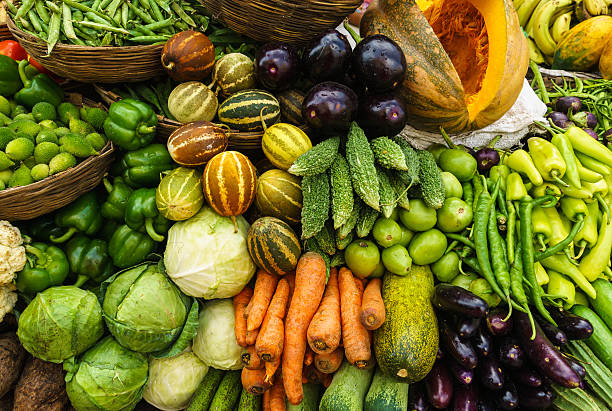Seasonal vegetables refer to the produce that is harvested during specific times of the year when they are naturally ripe and ready for consumption. These vegetables vary depending on the region’s climate and are abundant during certain seasons.
Benefits of Eating Seasonal Vegetables
Eating seasonal vegetables offers numerous health benefits. They are fresher, tastier, and more nutritious compared to out-of-season produce. Seasonal vegetables contain higher levels of essential vitamins, minerals, and antioxidants, which contribute to overall well-being.
Types of Seasonal Vegetables
Spring Vegetables: Spring brings a variety of vibrant vegetables such as asparagus, peas, artichokes, and spinach. These vegetables are packed with nutrients and signify renewal and freshness.
Summer Vegetables: Summer offers a bounty of colorful vegetables, including tomatoes, cucumbers, bell peppers, zucchini, and corn. These vegetables are hydrating and perfect for light and refreshing summer dishes.
Fall Vegetables: As the weather cools, fall vegetables like pumpkins, squash, sweet potatoes, and Brussels sprouts become prominent. They are rich in flavor and ideal for hearty soups and stews.
Winter Vegetables: Winter vegetables such as kale, cabbage, carrots, and beets thrive in colder climates. They provide essential nutrients during the winter months and are excellent for roasting and braising.
Nutritional Value of Seasonal Vegetables
Seasonal vegetables are nutrient powerhouses, offering vitamins, minerals, fiber, and antioxidants essential for maintaining good health. Incorporating a variety of seasonal vegetables into your diet ensures a balanced intake of essential nutrients.
How to Incorporate Seasonal Vegetables into Your Diet
Incorporating seasonal vegetables into your diet is easy and enjoyable. Start by visiting local farmers’ markets or joining a community-supported agriculture (CSA) program to access fresh and diverse produce. Experiment with different cooking methods and recipes to highlight the natural flavors of seasonal vegetables.
Seasonal Vegetable Recipes
- Spring Salad with Fresh Greens: Toss together fresh spring greens, strawberries, almonds, and a light vinaigrette for a refreshing salad.
- Summer Veggie Kabobs: Skewer colorful summer vegetables like cherry tomatoes, bell peppers, and mushrooms, then grill for a delicious outdoor meal.
- Autumn Roasted Root Vegetables: Roast a medley of root vegetables such as carrots, parsnips, and turnips with olive oil and herbs for a cozy autumn side dish.
- Winter Squash Soup: Blend roasted winter squash with vegetable broth, onions, and spices for a comforting and nutritious winter soup.
Shopping Tips for Seasonal Vegetables
When shopping for seasonal vegetables, look for vibrant colors, firm textures, and fresh aromas. Choose locally grown produce whenever possible to support local farmers and reduce environmental impact.
Environmental Impact of Eating Seasonally
Eating seasonal vegetables reduces the carbon footprint associated with food transportation and storage. By consuming locally grown produce, you help minimize greenhouse gas emissions and support sustainable agricultural practices.
Challenges of Eating Seasonally
While eating seasonally offers numerous benefits, it may present challenges, such as limited availability of certain vegetables and adjusting to seasonal changes in taste preferences. However, embracing seasonal eating fosters creativity in meal planning and encourages a deeper connection to the natural rhythms of the environment.
Conclusion
Incorporating seasonal vegetables into your diet is a simple yet impactful way to promote health, support local agriculture, and reduce environmental impact. By embracing the diversity and freshness of seasonal produce, you can enjoy delicious and nutritious meals year-round.
